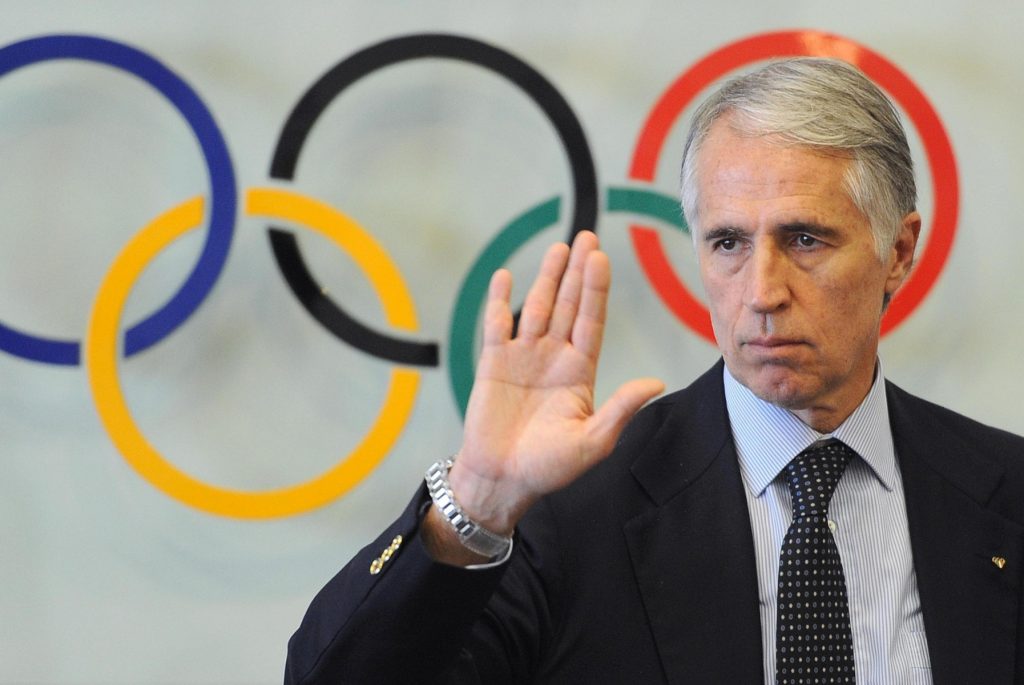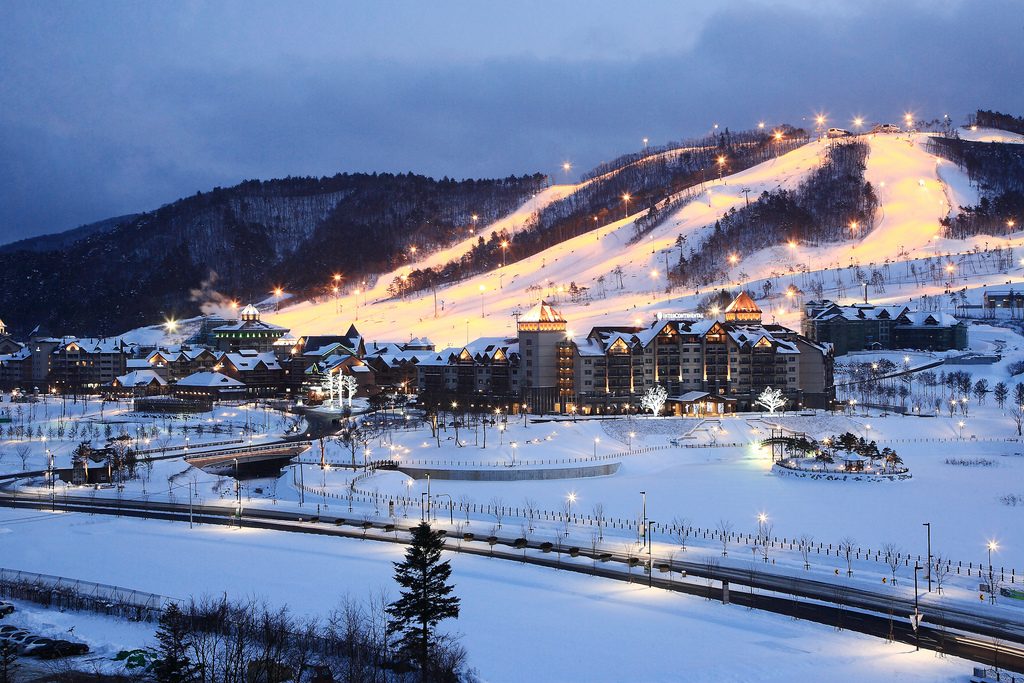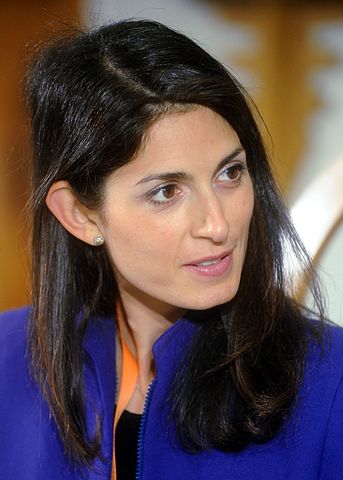
After a brief and no doubt much-needed break post-Rio 2016, International Olympic Committee (IOC) President Thomas Bach has been back working on his air miles and making the most of his diplomatic passport – which German newspaper Sueddeutsche Zeitung have reported that he has been using since 1994 – over the last few weeks.
First he nipped across the Atlantic for the United Nations General Assembly in New York, then he jetted across to Asia for fleeting visits to South Korea and Vietnam before returning to Europe in time for trips to Paris and Strasbourg as well as a Papal audience in Rome.
Today, he has been back in the headlines following the publishing of a letter claiming the Rome City Council made a “politically motivated” decision to oppose the city’s 2024 Olympic bid. Tomorrow, he faces perhaps the most important meeting of the lot when he attempts to convince Tokyo Governor Yuriko Koike of the merits of their 2020 venue plan amid calls to shift the rowing and canoe sprint venue 400 kilometers away.
Beyond the obligatory photographs of Bach either pressing the flesh with international diplomats or smiling alongside a young athlete at a sporting event, the theme across almost all of these meetings has been to build relations with Governments and reiterate the supposedly vital role sport still has in our society today.
“In this respect, like with many challenges that we all face in today’s fragile world we can only make progress by joining forces, by working together,” the German concluded when addressing the Council of Europe in Strasbourg. “Today’s resolution on Sport for All is a great opportunity for us to join hands and unite behind such common vision. The IOC is built on the belief that we can make the world a better place through sport. But we cannot do so alone. We can only achieve our goals and put sport at the service of humanity if we work together.”
It was his urging of European Governments to help reform the World Anti-Doping Agency (WADA) which dominated the press coverage of this speech afterwards, along with his decision not to mention Russia when highlighting sporting drugs problems. But he was similarly dogmatic in calling for more to be done to improve women’s sport, general participation and the combating of match-fixing.
Of course, all of this rhetoric is largely sugar-coating the real aim of such speeches: enhancing their relations with Governments in a broader sense in order to achieve deeper bidding and political objectives.
Bach has prioritized such diplomatic relationships since replacing Jacques Rogge as President in 2013, travelling and networking to a much greater degree than his predecessor.
But, if recent weeks are anything to show by, their standing in many nations is worse than ever.

Yes, international leaders certainly still see the value of sport as a public relations opportunity to be associated with something positive. They also understand the need to boost participation levels and invest funds in pursuit of elite-level medals. Yet they are less interested in bidding for sporting events and there appears a general acceptance that the soft power benefits of playing host are being outweighed by financial expense and a poor return for investment.
Brazil’s initial optimism about hosting the Olympics all but evaporated this year and, by the time the Games began, interim President Michel Temer appeared desperate to stay out of the limelight as much as possible. Given the subsequent arrest of IOC Executive Board member Patrick Hickey and decision of Bach not to attend the Paralympics, it can be presumed that relations between sport and the Brazilian Government are not exactly soaring. According to International Paralympic Committee President Sir Philip Craven in a prank phone call subsequently published on YouTube, Bach is also struggling in Germany and has a fractious relationship with Chancellor Angela Merkel.
And the recent reports across the German media about his diplomatic passport are indicative of increasing hostility in his domestic press. Countries like Norway appear as hostile as ever, while others in Western Europe appear keener to side with the World Anti-Doping Agency (WADA) rather than the IOC over drugs-testing issues.

South Korea’s Government also appear more apathetic about increasing their budget for the Pyeongchang 2018 Winter Olympics, while it appears very possible that one or more of the leaders of the three countries still bidding for the 2024 Games will not attend September’s IOC Session in Lima at which a vote will take place.
The IOC seemingly remain popular with some countries – Russia, for instance – but this hardly helps their reputation elsewhere.
Japan and Italy provide the best two examples, although the challenges here lie with city rather than national authorities.
In Japan, Governor Koike appears unwilling to back down over her proposal to shift the rowing venue away to Tome. This comes despite the united opposition of the sports world, with the IOC and world governing bodies for canoeing and rowing insisting that only the planned Sea Forest course on Tokyo Bay is suitable.
It is possible she may change her stance after meeting Bach tomorrow, but so far Koike has stood her ground. If she does back down over Tome, it remains possible the Governor will instead insist they use the 1964 Olympic course at Toda. This is also opposed by sporting bodies due to there not being enough room for the necessary infrastructure at the side of the lake, although, at a pinch, it could probably still be used. Due to their past willingness to shift events as part of their Agenda 2020 reform process in the past, it will be hard for the IOC to object if Koike does insist on a move.
And, while figures close to the IOC have been quick to lash out on social media at the press for supposedly misunderstanding the differences between operational and infrastructural budgets, they have not done enough to dispute the Tokyo Governmental study suggesting the budget has ballooned to four times its initial value. This is bound to influence other countries weighing up a potential bid.
As Bach has attempted to point out, the Roman decision to oppose the bid is slightly different because it was taken by the Five Star Movement rather than the country as a whole. Despite the support of Italian Prime Minister Matteo Renzi, Rome Mayor Virginia Raggi has repeatedly claimed it would be “irresponsible” to continue with bidding efforts because it would drain funds and resources, and – after deliberating – stuck to her guns following her election.

“Based on the information we have received over the last few days, it has been clearly demonstrated that the City Council’s decision was politically motivated for reasons beyond the Olympic project,” the German wrote in a letter published today by the Italian National Olympic Committee.
Clearly, the decision was “political” in a sense and it was nigh on impossible for Raggi to go against the views of party leader, Beppe Grillo. But it is also naïve because every decision made on any Olympic bid is political, as is a few of those made this year by Bach himself – cough, Russia, cough. And the Five Star party views are hardly completely out of line with whatever Governments have concluded about Olympic bids.
In short, the IOC may have got Rio 2016 out of the way, but the hard work is still beginning and convincing Governments of the enduring importance of the Olympic Games remains the biggest quest of Bach’s career. The impending outcome of ongoing WADA and IOC investigations into Russian doping, and consequent call for action to be taken, will only make things harder.
By Nick Butler
Republished with permission from insidethegames.biz.